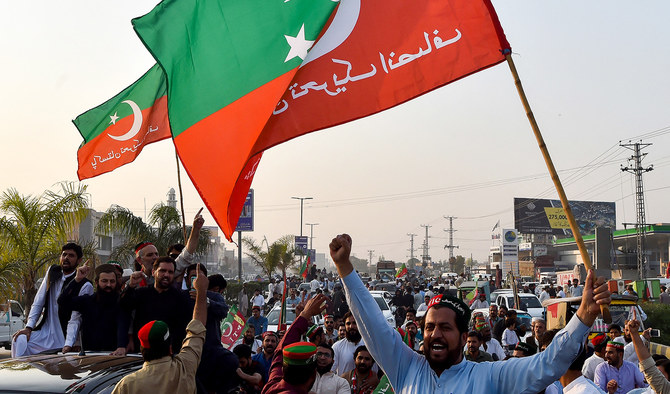ISLAMABAD: Former Pakistan prime minister Imran Khan on Friday directed his Pakistan Tehreek-e-Insaf (PTI) party to start campaigning for upcoming general elections due in January, hours after a court denied the former premier bail on charges of leaking state secrets.
Khan was declined bail by the Islamabad High Court in a case in which he has been indicted on charges of leaking state secrets. The former premier is accused of making public an alleged diplomatic cable sent to Islamabad by Pakistan's ambassador in the United States last year and hence compromising ‘secret communication method’ of Pakistani missions abroad.
Khan says the US hatched a plot to overthrow him after his visit to Moscow, an allegation denied by Washington. The former premier had waved a letter at a public rally and claimed it was a ‘cipher’ from a foreign nation calling for the end of his government, days before his removal from office. Khan denies the charge and says the contents of the cable appeared in the media from other sources.
In a message shared by his party on X, Khan urged his followers to "fight for your own rights and your country's freedom," saying their struggle was entering its "decisive phase."
"Our struggle is entering its decisive phase. You will have to fight for your own rights and your country's freedom," the PTI quoted the ex-premier as saying, in a message received through his family this week.
"I have directed my lawyers and party office bearers to hold conventions all over the country and also commence the campaign for whenever elections are held."
Khan, who is in jail, has been at the center of months of political turmoil in the South Asian country since being forced out of office in April 2022 after losing a no-confidence vote in parliament.
The ex-premier said at the time the military was trying to sideline him after he fell out with the top generals over disagreements about top appointments. The military denies it.
Khan is facing a slew of cases that the former premier says are "politically motivated" and aimed at keeping him out of politics. He has been in jail since August 5 after being convicted in a separate case involving the sale of state gifts.
While his three-year prison term was suspended, he remains in jail in connection with other cases. it is quite unlikely for Khan to contest the elections unless his conviction in the graft case is overturned.
























